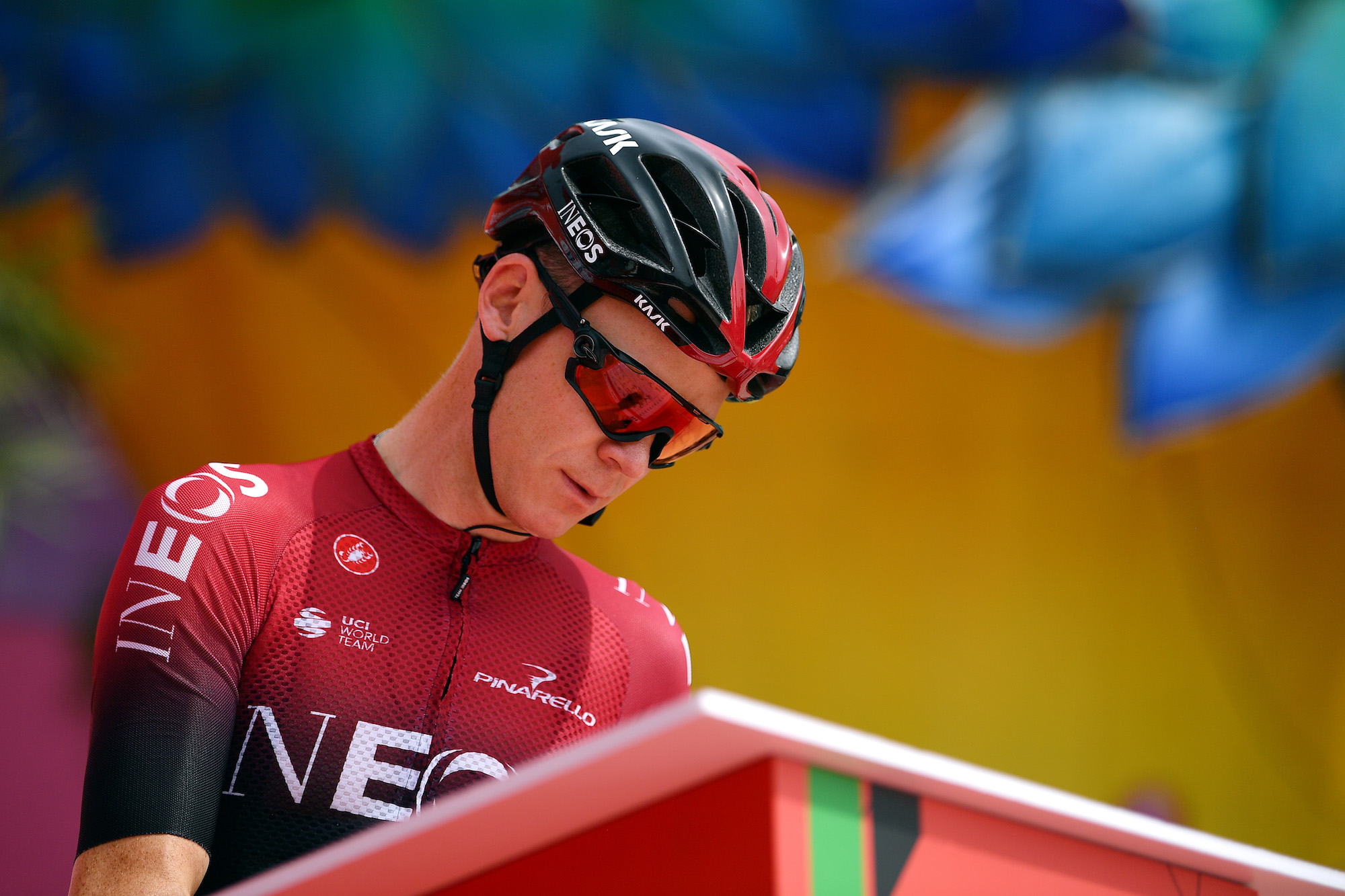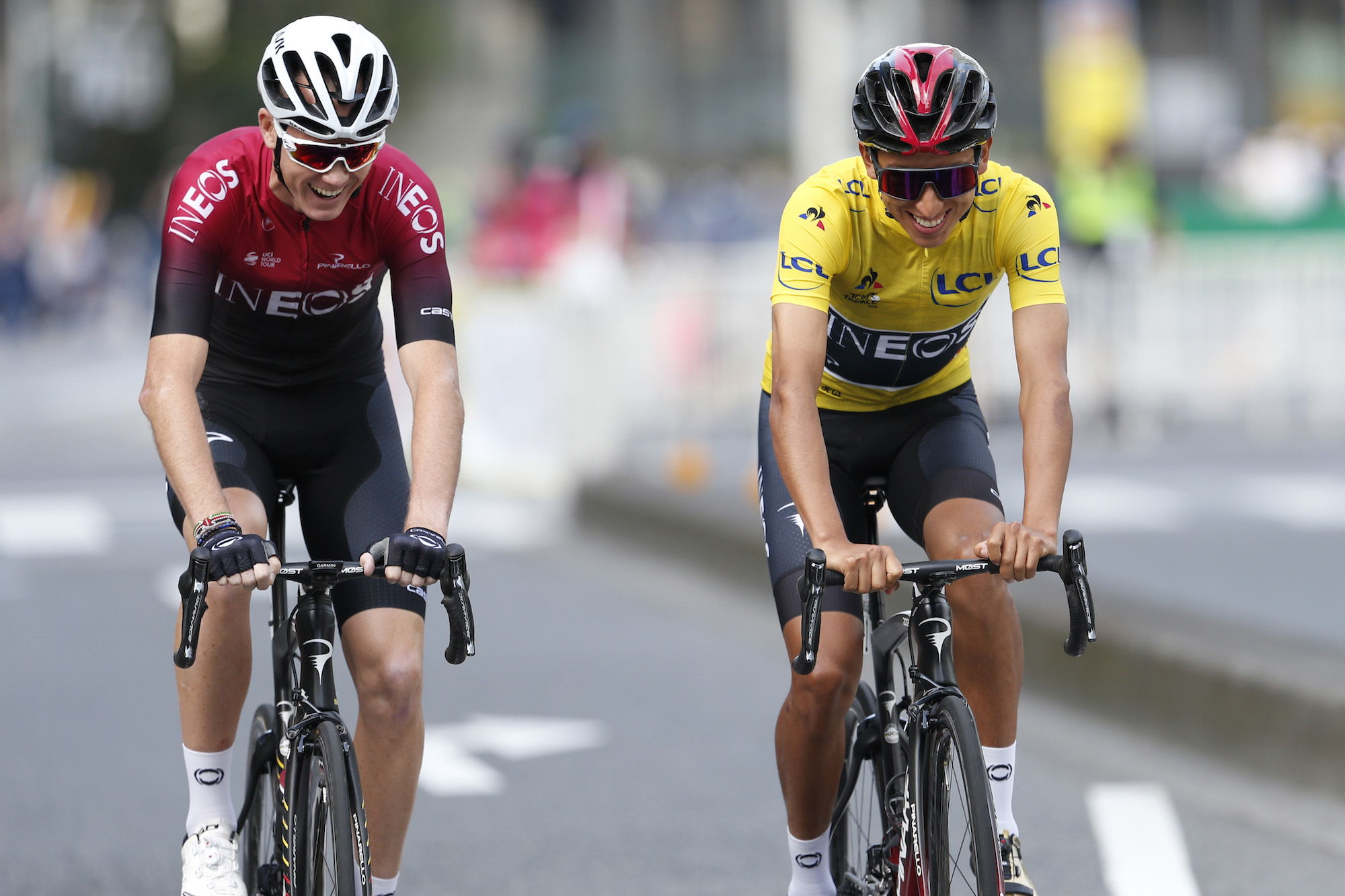Froome's departure from Ineos is no surprise, but it still raises plenty of questions
It’s no surprise that Chris Froome is leaving Ineos for Israel Start-up Nation, but there are likely to be surprises aplenty in the coming weeks before he does

The latest race content, interviews, features, reviews and expert buying guides, direct to your inbox!
You are now subscribed
Your newsletter sign-up was successful
Thursday's confirmation of Chris Froome’s departure from Ineos and his planned transfer to Israel Start-Up Nation hardly comes as a surprise. There have been many rumours about the move in recent weeks, including some that the Briton would be bought out of his contract by his new suitors in time for him to race this year’s Tour de France in their colours. We now know this won’t happen until next year, but the news that Froome will be leaving the team with which he has raced for 11 seasons has still left us with plenty of questions to mull over.
>>> ‘You need a big leader to elevate a team, and Chris Froome is a beast,’ says Sean Yates
The issue of why Froome has been allowed to leave is one of the few that’s isn’t difficult to answer. Ineos have four Grand Tour winners in their line-up and Froome is the highest paid and, for the past two seasons, the least performing of the quartet. Geraint Thomas has finished first and second at Tour, Egan Bernal is the defending Tour champion and Richard Carapaz won last year’s Giro d’Italia. Since his own victory in the corsa rosa in 2018, Froome hasn’t won another race, largely as a result of a long lay-off following his horrendous crash in June 2019 during a time trial recce at the Critérium du Dauphiné.
Add in the fact that Froome recently turned 35, putting him firmly in the veteran category particularly when it comes to his speciality of three-week events, and the decision made by Ineos team boss Dave Brailsford looks sensible. As was the case when he shunted defending Tour champion Bradley Wiggins into a Grand Tour siding back in 2013 in order to allow the then emerging Froome to have a clear run at the yellow jersey, Brailsford has shown he’s not likely to be swayed by sentiment or past history. Froome may have been the pre-eminent Grand Tour rider of the 2010s, taking no fewer than seven titles, but the likelihood of him adding to that haul has dwindled over the past two seasons. At the same time, Thomas has thrived and Bernal has arrived, his immense talent and astonishing racing maturity making him the obvious choice to lead Ineos’s Grand Tour attack for years to come.

With racing set to restart at the end of this month, there will inevitably be immense focus not only on Froome’s form but also on his programme. He’s been talking up his hopes for a shot at a fifth Tour title, but the most immediate question in the short term is whether he will be even part of Ineos’s eight-man line-up when the race is due to get under way in Nice on 27 August.
It may appear opportune for the British team to field a trio of leaders to match those of main rivals Jumbo-Visma, but the Dutch team’s trio look more cohesive, more committed to supporting each other depending on how the race develops on the road. Most will remember that Froome created a furore within Team Sky during the 2012 Tour when he briefly rode away from Wiggins on two occasions. More recently, Thomas revealed that he was never entirely sure of his team-mate’s intentions as the Welshman emerged as the winner of the 2018 race. Moreover, last year’s co-leadership tandem of Thomas and Bernal not only proved successful but seemed to be harmonious. There is also the question of whether Brailsford and Ineos will want to give a leadership role to a rider who’s already committed to another team from next season.
What may play in Froome’s favour, though, is Ineos’s inability to control their rivals in the mountains during last year’s Tour. As Bernal acknowledged, Thibaut Pinot looked the strongest of the yellow jersey challengers until sidelined by his bizarre thigh injury, while both Groupama-FDJ, Jumbo and Astana looked to have a significant edge over Ineos. Consequently, if Froome is in form, can Ineos afford to leave him out? Even if he’s not at his Tour-winning best, his experience and climbing ability could make him a tremendous asset on what is being touted as the toughest Tour route of recent years.
The latest race content, interviews, features, reviews and expert buying guides, direct to your inbox!
Beyond this season, competitive life looks a little less complicated both for Froome and his long-time employers. The Briton will head to Israel Start-Up Nation as their undisputed leader and with a salary to match. Further reinforcements are sure to come to support Froome’s bid for further Grand Tour success. It will be interesting to see whether the team’s commitment to bringing through Israeli riders to compete in the biggest races will be diluted because of this.
As for Ineos, with Froome’s salary available to splurge, they will be well placed to follow up on their reported interest in Adam Yates or perhaps even bring in a Classics big-hitter to lead their attack in races where they’ve always underachieved given the extent of their resources. Yet, however they decide to invest that cash, the most interesting aspect of the unravelling of their highly successful partnership with Froome will be to see how he matches up against them. Gifted with almost unparalleled competitive drive, Froome won’t consider that he’s even close to being finished yet, and that could up lead to some very tasty racing in 2021 and beyond.
Peter Cossins has been writing about professional cycling since 1993, with his reporting appearing in numerous publications and websites including Cycling Weekly, Cycle Sport and Procycling - which he edited from 2006 to 2009. Peter is the author of several books on cycling - The Monuments, his history of cycling's five greatest one-day Classic races, was published in 2014, followed in 2015 by Alpe d’Huez, an appraisal of cycling’s greatest climb. Yellow Jersey - his celebration of the iconic Tour de France winner's jersey won the 2020 Telegraph Sports Book Awards Cycling Book of the Year Award.